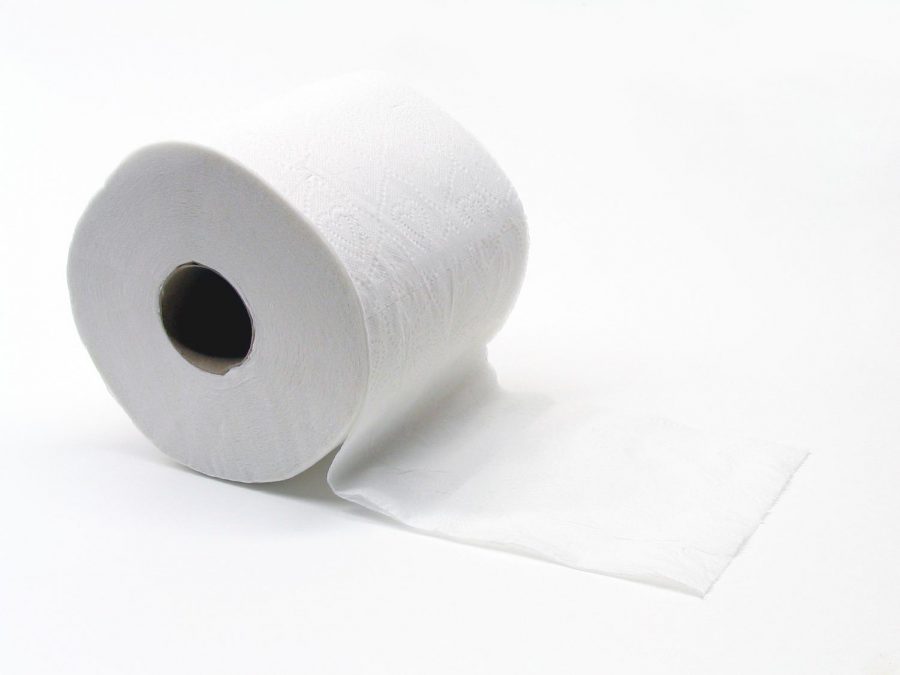Please, stop buying toilet paper.
As the panic surrounding the COVID-19 virus grows, people are panicking and buying up important, life-saving supplies
We have all heard the stories. We have all seen the pictures. We have all gone to the stores. Walls of empty shelves where life necessities like toilet paper, hand sanitizer, and face masks once sat. People, staring at the face of a global crisis, ran to the stores to buy as much of these as they possibly could. Many people bought out these items to resell online at a higher price, but most simply wanted to prep for the future, stockpiling on goods they heard were selling out fast.
If you have paid attention, you likely will have seen listings online for these products selling at crazy prices. People selling toilet paper by the square, selling doomsday prepping kits, or $1 bottles of hand sanitizer at $20. This practice is referred to commonly as price-gouging. It is common whenever a high-demand item comes out. Concert tickets, limited-edition collectibles, and other items have all combated this practice for years, but the hygiene industry did not prepare for this. There’s no way they could have.
In an urgent effort to reduce this practice, eBay has banned the sale of these items, and Amazon is taking down any sellers listing these products for extreme prices. This has resulted in many of these sellers simply stockpiling these products in their homes, unsure of what to do. They want to make a profit, but no one will let them sell for the prices they want. A New York Times article details one such seller who has tens of thousands of bottles of hand sanitizer, disinfecting wipes, face masks, and other hygiene products stacked up in his home (New York Times).
Many user comments on the article criticize the seller, pointing he could easily get rid of these items by either giving them to a local hospital or simply selling them for a fair price, and he did donate the supplies on Sunday, a day after the article was published, and people can see the ethical issues with price-gouging, especially for items that could potentially save people’s lives, but the broader issue here is not necessarily the price-gouging.
As mentioned before, many people—-normal, average people—-have gone to stores to buy large quantities of these items for their own personal stock, afraid they may not be able to get them in the future. Hoarding like this presents the real problem. Buying huge quantities like this is practically completely unnecessary. COVID-19 is not going to close all stores, it’s not going to shut down the roads, and it’s not going to cancel all hygiene product production.
Instead, when you buy out local supplies of hygiene products, you make it drastically harder for people who actually need these supplies to get them. Not everyone can afford to buy bulk orders of toilet paper, and not everyone can afford to pay the gouged prices online. Not everyone has the time to travel the city in search of basic necessities, so buying out these items only puts more people at risk.
You also make it harder for medical professionals to care for people actually infected with COVID-19 and people at higher risk of getting it. Only a couple of weeks ago the United States Surgeon General urged people on twitter to stop buying face masks (New York Times). He pointed out that across the country, stores had sold out of face masks, making them incredibly difficult for hospitals to find. Most normal people do not need face masks, and buying them is typically pointless, so buying large quantities only made it harder for hospitals to do the job we need them to. Right now, nothing is more important than ensuring that the healthcare system can operate at its maximum efficiency to fight COVID-19, and buying essential healthcare supplies prevents hospitals from doing this.
The best thing we can do right now is to spend like we normally do and not put any more stress on the retail system. Stores and suppliers are only equipped to handle a certain amount of demand and rapidly increasing the demand could put the entire system at risk. Doomsday prepping will only put us closer to an actual doomsday where stores will not have the items people need to live.
We are currently living in the middle of a global health crisis and it is easy to start thinking about doomsday, and what you might need to survive, but a global crisis is not the time to start selfishly thinking about what you might need in eight months. It is the time to start thinking about how your actions will affect the other people in your society and what other people need right now, especially those who cannot afford to spend as wantonly as you can.

James Martini’s interest in writing began as early as the second grade, and he has written ever since. As a senior, he began his career at the Jesuit Chronicle, writing about the numerous activities, events, and issues facing the Jesuit student body and community today. His primary interests center around art, skateboarding, and pop culture. Outside of writing, James produces music and develops video games both as himself and as part of Jesuit’s Game Design Club. He also plays a pivotal role in the Robotics team, working as its captain in the 2018-2019 school year. He worked with Jesuit’s Zero Robotics club in 2018 and 2019, successfully advancing to the international finals at MIT in Boston, working alongside teams from San Francisco and Italy. When not working on school or other projects, James passes time skateboarding, a passion he first took up when he was six, and rekindled in 2019 after a nearly five year break from the activity.








